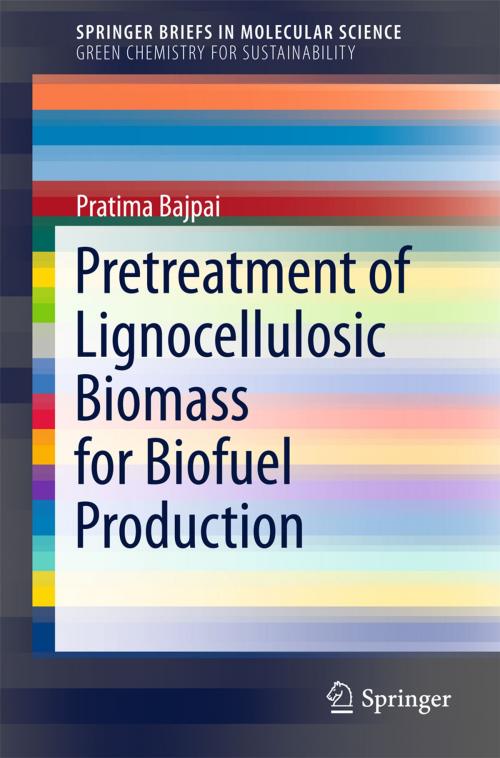Pretreatment of Lignocellulosic Biomass for Biofuel Production
Nonfiction, Science & Nature, Science, Chemistry, Technical & Industrial, Physics, Energy, Technology| Author: | Pratima Bajpai | ISBN: | 9789811006876 |
| Publisher: | Springer Singapore | Publication: | March 8, 2016 |
| Imprint: | Springer | Language: | English |
| Author: | Pratima Bajpai |
| ISBN: | 9789811006876 |
| Publisher: | Springer Singapore |
| Publication: | March 8, 2016 |
| Imprint: | Springer |
| Language: | English |
The book describes the pretreatment of lignocellulosic biomass for biomass-to-biofuel conversion processes, which is an important step in increasing ethanol production for biofuels. It also highlights the main challenges and suggests possible ways to make these technologies feasible for the biofuel industry. The biological conversion of cellulosic biomass into bioethanol is based on the chemical and biological breakdown of biomass into aqueous sugars, for example using hydrolytic enzymes. The fermentable sugars can then be further processed into ethanol or other advanced biofuels. Pretreatment is required to break down the lignin structure and disrupt the crystalline structure of cellulose so that the acids or enzymes can easily access and hydrolyze the cellulose. Pre-treatment can be the most expensive process in converting biomass to fuel, but there is great potential for improving the efficiency and lowering costs through further research and development. This book is aimed at academics and industrial practitioners who are interested in the higher production of ethanol for biofuels.
The book describes the pretreatment of lignocellulosic biomass for biomass-to-biofuel conversion processes, which is an important step in increasing ethanol production for biofuels. It also highlights the main challenges and suggests possible ways to make these technologies feasible for the biofuel industry. The biological conversion of cellulosic biomass into bioethanol is based on the chemical and biological breakdown of biomass into aqueous sugars, for example using hydrolytic enzymes. The fermentable sugars can then be further processed into ethanol or other advanced biofuels. Pretreatment is required to break down the lignin structure and disrupt the crystalline structure of cellulose so that the acids or enzymes can easily access and hydrolyze the cellulose. Pre-treatment can be the most expensive process in converting biomass to fuel, but there is great potential for improving the efficiency and lowering costs through further research and development. This book is aimed at academics and industrial practitioners who are interested in the higher production of ethanol for biofuels.















